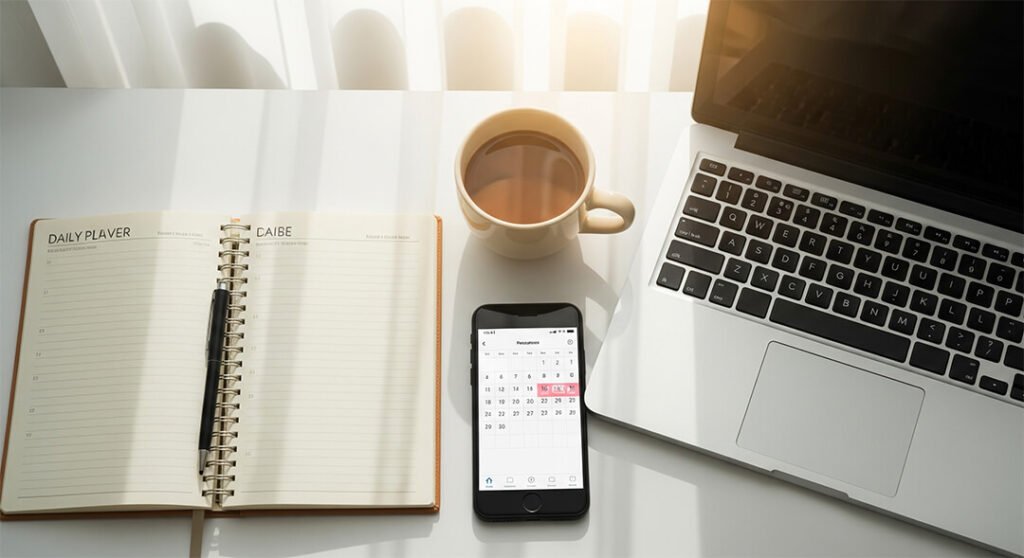Mental Health Challenges Faced by Remote Workers
Remote work is no longer a trend; it’s a reality for millions worldwide. While it offers flexibility, zero commute, and autonomy, remote workers often face hidden mental health challenges.
According to a 2022 study by Buffer, over 20% of remote workers reported loneliness as their biggest struggle, followed closely by collaboration difficulties and distractions at home. A Harvard Business Review article also noted that remote workers often work longer hours, leading to higher stress and burnout.
Isolation, lack of physical activity, blurred work-life boundaries, and lack of human connection contribute to declining mental wellness for remote professionals.
If you’re a remote worker or managing remote teams, it’s crucial to prioritize mental wellness to ensure long-term productivity and personal happiness.
The Real Impact of Poor Mental Health in Remote Work
Ignoring mental wellness while working remotely doesn’t just affect your mood—it impacts your focus, decision-making, and physical health.

- Burnout symptoms (fatigue, insomnia, cynicism) can creep in without warning.
- A Stanford study showed that over 40% of remote employees experienced stress-related physical symptoms.
- Many professionals admit to working in pajamas all day, skipping meals, and working late into the night, blurring the boundaries between work and personal life.
Poor mental wellness can lead to:
- Declining job performance
- Strained personal relationships
- Anxiety, depression, and social withdrawal
Let’s explore how to address these challenges realistically and effectively.
Solution: Practical Mental Wellness Tips for Remote Workers

Here are proven, factual, and simple-to-apply strategies to boost mental health while working remotely:
1. Establish a Clear Daily Routine
Having a structure helps anchor your day.
- Start and end work at consistent times.
- Use time-blocking tools like Google Calendar or Notion.
- Include breaks and time for meals.
Case Study Insight: A 2021 Gallup report found that remote employees with consistent routines were 33% less likely to report burnout.
2. Design a Dedicated Work Space
Avoid working from your bed or couch. Create a specific zone for work—even a small desk corner will do.
- This helps your brain separate ‘work mode’ from ‘relax mode’.
- It reinforces psychological boundaries between professional and personal life.
3. Use the 50/10 Focus Method
To stay focused when working remotely, practice this:
- Work for 50 minutes.
- Take a 10-minute break (stand, stretch, drink water).
Apps like Focus To-Do or Pomofocus can help you maintain the cycle.
4. Dress for Work
You don’t need formal attire, but changing out of sleepwear sets the tone for productivity.
Psychological studies confirm that clothing affects mindset and performance. This small habit improves self-discipline.
5. Set Social Check-ins

- Schedule weekly virtual coffee chats with coworkers or friends.
- Join Slack communities or professional forums.
This combats loneliness and reduces anxiety, as shared in a Mental Health America report in 2023.
6. Get Daily Physical Activity
Movement directly impacts mental health. Just 30 minutes of walking daily reduces depression symptoms by up to 26%, according to the Mayo Clinic.
- Try desk exercises, stretching, or yoga.
- Use wearable fitness trackers to set step goals.
7. Prioritize Sleep and Nutrition
Sleep and diet play a major role in emotional regulation and focus.
- Avoid late-night screens.
- Eat balanced meals at regular times.
- Stay hydrated.
Use tools like Sleep Cycle or MyFitnessPal to track progress.
8. Reduce Screen Overload
- Use blue-light filters (f.lux or built-in settings).
- Practice the 20-20-20 rule: Every 20 minutes, look at something 20 feet away for 20 seconds.
- Turn off non-essential notifications.
9. Practice Mindfulness or Journaling

- Spend 5-10 minutes daily in mindfulness meditation using apps like Headspace or Calm.
- Or write in a journal—this can help declutter your thoughts.
Mindfulness-based stress reduction (MBSR) is proven to lower cortisol and anxiety.
10. Seek Help When Needed
Remote workers often feel they must “handle everything alone.” That’s a myth.
- Use Employee Assistance Programs (EAPs) if available.
- Reach out to a licensed therapist via platforms like BetterHelp or Talkspace.
Remember, mental wellness is not a luxury—it’s a basic necessity.
Related Questions
How to prepare mentally for working remotely?
To prepare mentally:
- Set up a dedicated workspace.
- Plan your routine with breaks.
- Prepare a weekly task list.
- Let family or housemates know your work hours.
- Mentally separate work and home roles.
Prepping your mindset helps transition smoothly from traditional to remote work.
How to stay focused when working remotely?
- Use productivity frameworks like Pomodoro.
- Block distracting websites.
- Use noise-canceling headphones or ambient music.
- Break large tasks into smaller chunks.
- Maintain a daily task list.
These simple focus hacks reduce procrastination and improve deep work.
What habits should you avoid if you are working remotely?
Avoid these habits:
- Working from bed or the couch
- Skipping meals
- Staying in pajamas all day
- Working without breaks
- Ignoring social connections
These habits erode discipline and affect long-term mental clarity.
How do you set yourself up to work remotely?
- Invest in a basic ergonomic setup (chair, desk, lighting).
- Install necessary tools: Zoom, Slack, Trello, or Asana.
- Secure your Wi-Fi and backup power if needed.
- Maintain backup copies of your work.
- Keep work-life boundaries clear.
How to stay sane when working from home?
To stay sane:
- Go outside for sunlight daily.
- Create a fun post-work routine.
- Keep virtual connections alive.
- Practice gratitude journaling.
- Take up hobbies or side learning.
Psychologists recommend replacing screen time with human or natural interaction whenever possible.
How to stay healthy when working remotely?
- Follow a regular meal plan.
- Get 7-8 hours of sleep.
- Exercise for at least 30 minutes.
- Avoid energy drinks or excessive caffeine.
- Maintain work hours and avoid overworking.
Health and productivity go hand in hand.
Can remote work cause anxiety?
Yes. Factors like isolation, unclear boundaries, and communication gaps can trigger anxiety. A 2023 study by APA found that remote employees had 22% higher anxiety levels when work-life separation was poor.
Support systems and routines are key buffers against anxiety.
What are 5 ways to improve mental health?
- Get physical exercise daily
- Eat nutritious meals
- Build and maintain social relationships
- Practice mindfulness or deep breathing
- Take breaks and prioritize sleep
These core habits are essential regardless of your work setup.
Bonus Tips from Real Remote Worker Case Studies
Case Study 1: The IT Freelancer
Ajay, a 32-year-old software developer in India, struggled with blurred work hours. He started:
- Wearing formal shirts during work hours
- Using time-tracking tools
- Cooking lunch during his noon break
Result: Within two months, he felt less anxious and more organized. His productivity increased by 18%, according to his Upwork time log.
Case Study 2: Marketing Manager in Berlin
Laura, managing global teams, was feeling isolated. She initiated:
- Bi-weekly “fun Fridays” on Zoom
- Morning walks before opening her laptop
- Mid-day guided meditation breaks
Within 4 weeks, she reported better team bonding and lower stress levels, as she shared on LinkedIn.
Case Study 3: Remote Teacher in Canada
A public school teacher shifted online post-pandemic. To stay mentally fit, she:
- Scheduled strict working hours
- Joined an online teacher community
- Practiced journaling gratitude daily
She now advocates for remote well-being protocols in her school district.
Final Words: Make Mental Wellness a Daily Habit
Remote work is here to stay. But that doesn’t mean we need to sacrifice mental peace or health.
Your brain is your most important tool. And just like you maintain your laptop or phone, it needs maintenance too. The practices above are not hard or expensive—just intentional.
By integrating these mental wellness tips for remote workers into your lifestyle, you not only improve your productivity but also build a healthier, more fulfilling work life.
FAQ Section
How to prepare mentally for working remotely?
Establish a routine, set boundaries, create a workspace, and prepare your mind with a clear weekly plan.
How to stay focused when working remotely?
Avoid working from bed, skipping meals, multitasking excessively, and overworking.
What habits should you avoid if you are working remotely?
Avoid working from bed, skipping meals, multitasking excessively, and overworking.
How to stay sane when working from home?
Create a designated workspace, install essential tools, and maintain strong boundaries between work and life.
How to stay healthy when working remotely?
Eat balanced meals, sleep well, exercise daily, and take mental breaks.
Can remote work cause anxiety?
Yes. Remote work can lead to anxiety if you lack routine, support, or clear boundaries.
What are 5 ways to improve mental health?
Exercise, eat well, sleep adequately, build social bonds, and practice mindfulness.





